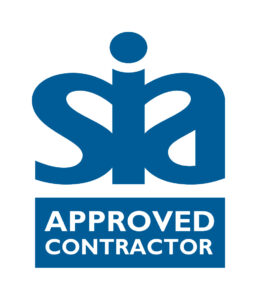It is easy to dismiss a property caretaker or handyperson as a ‘put upon’ employee who people in an organisation routinely turn to with all their smallest problems. But in any progressive business, this is a key role which carries critical responsibilities and should be filled by someone with multiple skills and qualifications.
Security and facilities management is far from a periphery role in any organisation, and the property caretaker or handyperson therefore has duties which involve compliance, maintenance and operations and has a significant influence over the efficient and successful running of the business. Here we have compiled together five examples of where a property caretaker or handyperson might be needed in a business to highlight the crucial role that they can play.
Property sale or handover
Where a commercial property is vacant and is being prepared for sale or handover to a new owner or tenant, a dedicated property caretaker can ensure that the buildings and facilities are maintained as safe and operational. Commercial transactions such as this will have deadlines which need to be met and the property caretaker can ensure that security, health and safety arrangements and the building fabric is monitored and maintained, in order to ensure the property meets the requirements of the new owners or tenants on the required date.
Health and Safety
In a small to medium business it is often the property caretaker who has responsibility for key health and safety checks. This can be fire or security alarm testing, auditing fire procedures, ensuring waste disposal and environmental procedures are adhered to, storage of equipment and materials and carrying out routine monitoring for electrical safety, structural safety and other safety aspects specific to that organisation and its operations. The caretaker may also have responsibility for ensuring that welfare facilities are maintained in a safe and hygienic manner. An extension to health and safety is that the property caretaker may have key security responsibilities also, such as signing people in or out of the premises and monitoring car parking etc. The caretaker often has an office or location in a prominent position to be able to monitor these things.
Maintenance tasks
This is perhaps the traditional role of the property caretaker, and can involve various regular maintenance tasks which come under the ‘handyperson’ banner. In effect, this is why the role requires someone who is adaptable and multi-skilled, but to a very high standard. So this can involve disciplines such as plumbing, joinery and basic electrical knowledge, and deals with breakdowns and repairs, but also planned preventive maintenance. This therefore requires organisational skills to design and adhere to annual schedules and programmes.
Stock management
All organisations have a duty to look after the basic welfare of its employees and a big element of this is maintaining stocks of soaps, hand cleaner, towels and cleaning equipment. There are many replenishable items in a business which someone needs the responsibility to look after. This may also extend to personal protective equipment in some organisations.
Facility appearance
Having a dedicated property caretaker or handyperson means that the general appearance of the facility can be maintained. This is important from a PR perspective as appearances are important in creating the right image and impression of a business, so the caretaker could be tasked with maintaining gardens, breakout areas, car parks, building facades and signage and front-of-house areas such as reception and entrance areas. This will require skills such as painting and decorating as well as potentially being able to work at heights.
If you think your business would benefit from a dedicated full or part-time property caretaker or handyperson First Response Group can provide skilled and qualified personnel to fulfil these duties and responsibilities within your organisation, so contact us today.
Article By:











